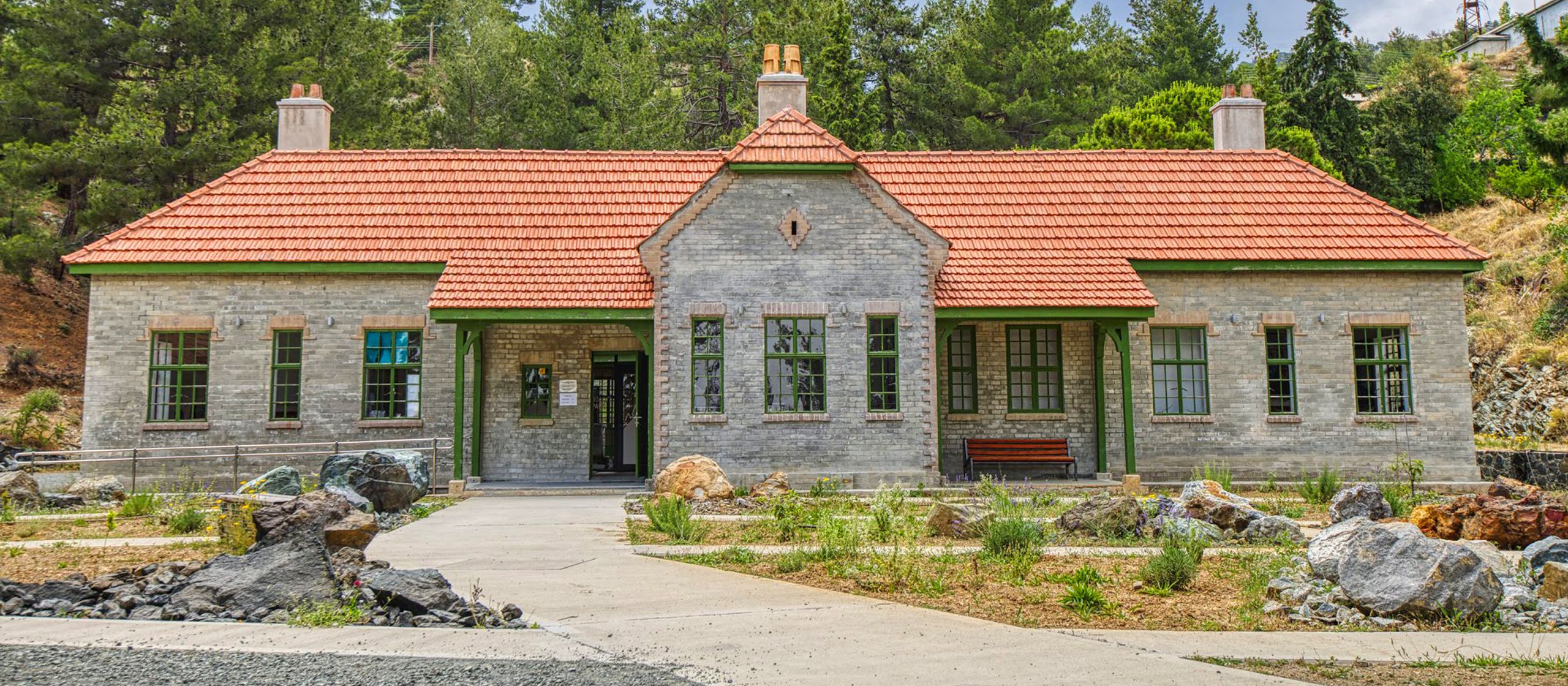Few words
Troodos has unique and culturally significant Ecclesiastical, Folk Art, and Wine (old wine Press) Museums which is an ongoing record of bygone eras. Tucked away in the Troodos pine forests, are Cyprus’ famous painted churches with their vibrant frescoes on the walls and ceilings, and fabulous examples of Byzantine art. Ten of these are on the UNESCO…World Heritage List. Kykkos Monastery, the largest and perhaps most well-known monastery on the island, has a breath-taking Byzantine museum and the main church houses a golden icon of the Virgin Mary, which, as tradition has it, was painted by the Apostle Saint Luke. Do not miss the Troodos Geopark Visitor Centre in Amiantos and the Troodos National Forest Park Visitor Centre in Troodos Square.
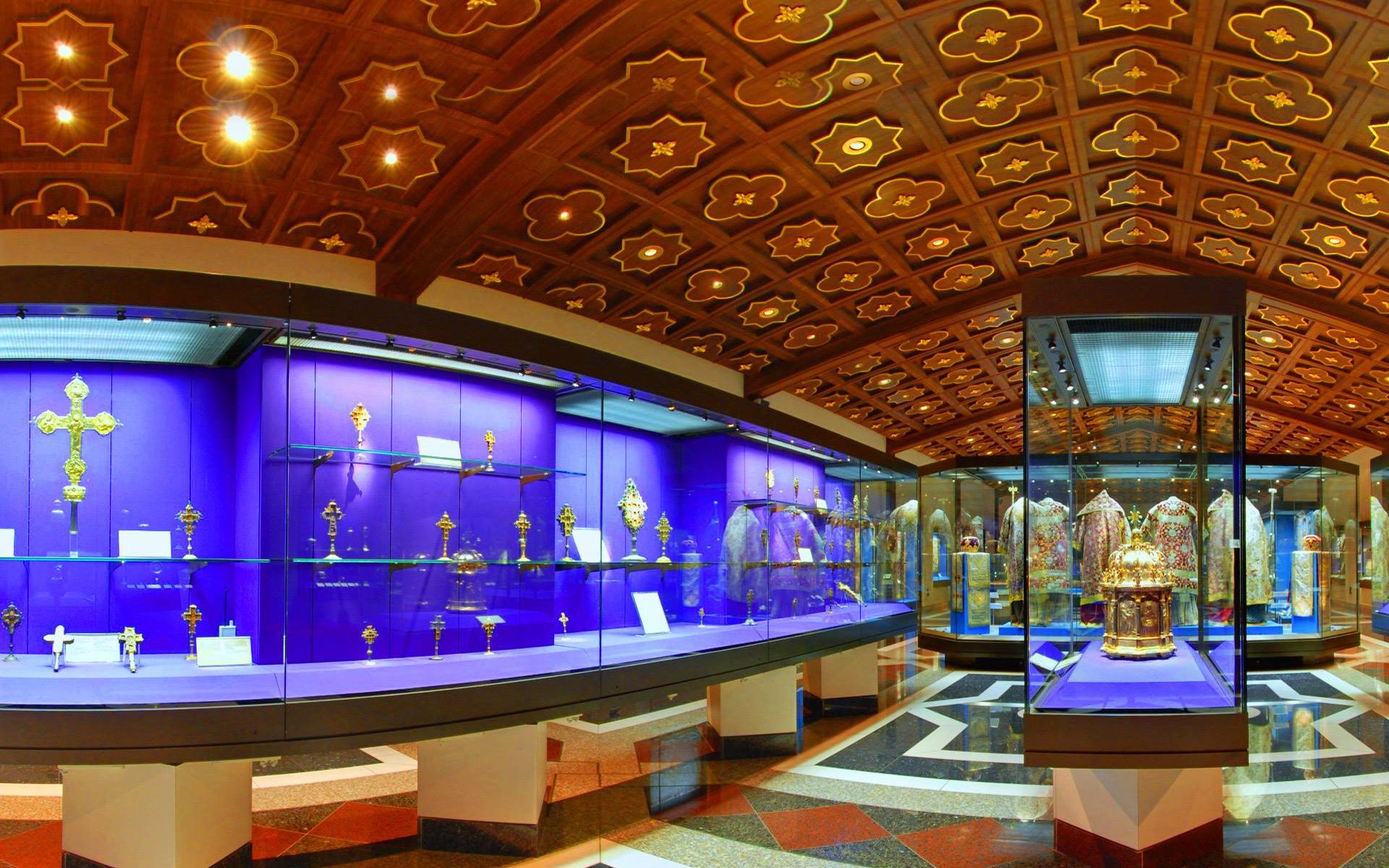
Museum of Kykkos Monastery
Museum of Kykkos Monastery
The Monastery of Kykkos is dedicated to Panagia (the Virgin Mary) and contains one of the three icons attributed to Agios Loukas the Apostle and Evangelist. The monastery is the richest and most lavishly adorned Monasteries in Cyprus and tourists visit it by the bus load. It is located in the Marathasa region on a mountain peak at an altitude of 4,320 feet. The icon itself is covered in silver gilt and lies in a shrine made of mother-of-pearl and tortoise shell that stands in front of the iconostasis (the line of icons in a long decorated wall of wood separating the sanctuary from the rest of the church). The Monastery was founded between 11th-12th century A.D. during the reign of the Emperor Alexios Komnenos I (1081-1118 A.D.).
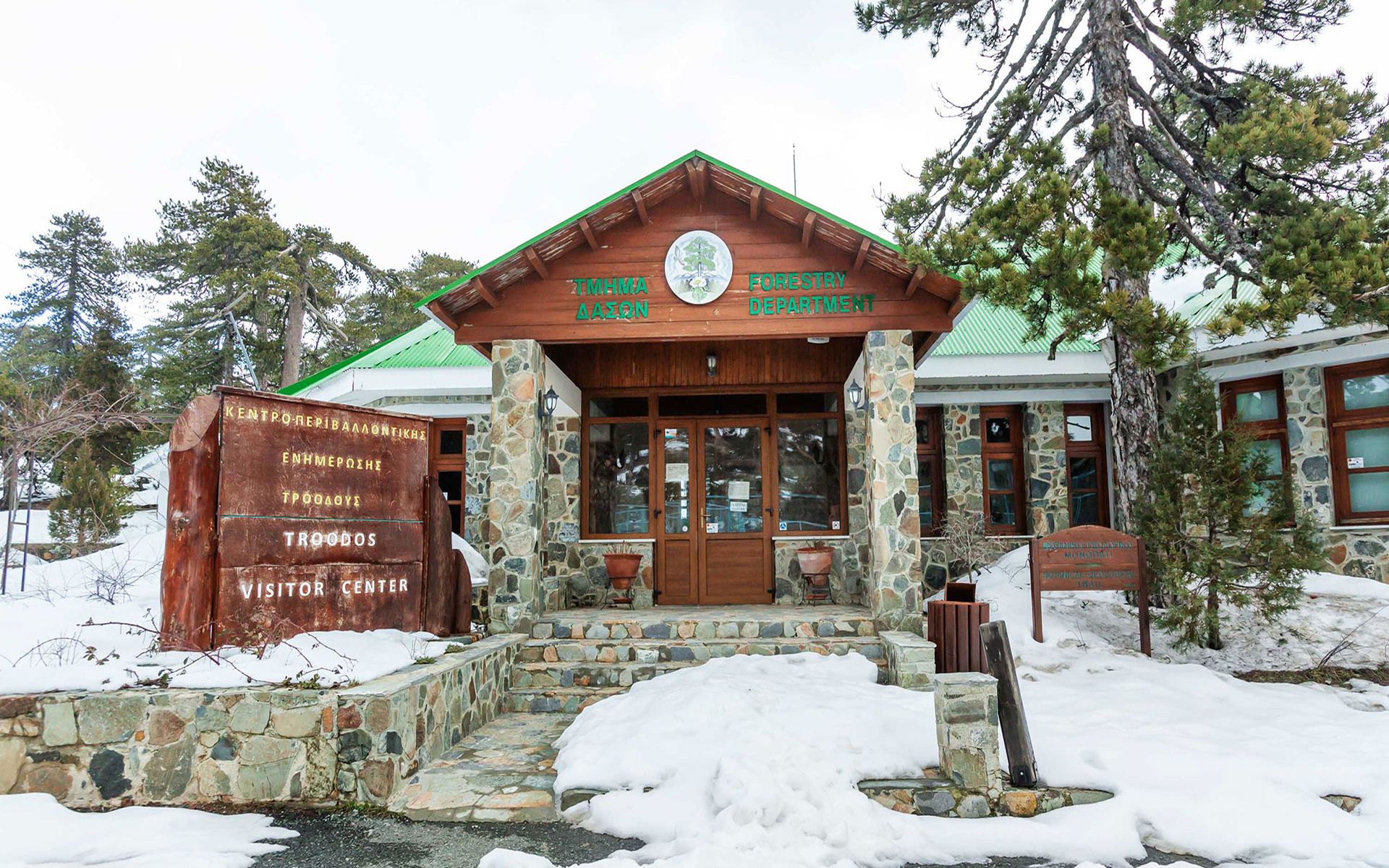
Troodos National Forest Park Visitor Centre
Troodos National Forest Park Visitor Centre
The Visitor Centre of the Troodos National Forest Park, is situated 200m west of the Troodos Square, to which is also connected with a paved trail. It is the first Centre of its kind in Cyprus and it has been operating since July 2002. The building has been erected by the Cyprus Tourism Organization.
Visitor Centre has been undertaken by the Forestry Department.The Centre aims, through its exhibits and services, to inform the visitor about the importance and unique character of the Park, various environmental issues, recreational facilities available and activities which are permitted in the Park. The Centre has a reception area with a small shop, an exhibition gallery and a film theatre. A botanical and geological trail is also connected to the building.
The visitor can obtain information about the Park area from the reception. A scale model of the park is located at the reception, on which all facilities and important areas can be identified. Books and souvenirs related to the Park can also be purchased at the reception. Several exhibits about the Park are found in this room related to the environment, geology, flora, fauna, various habitats, recreation, history and the civilization of the island.
There are dioramas (representations of ecotopes) with stuffed animals and birds, computers, microscopes, geological model, sketches and photographs explaining the creation of Cyprus, the importance of the ecological pyramid, the diversity of endemic plants and the threats to the Park. There are also collections of butterflies, wood samples, fossils and a cross section of an age-old Black pine showing its annual rings and age.
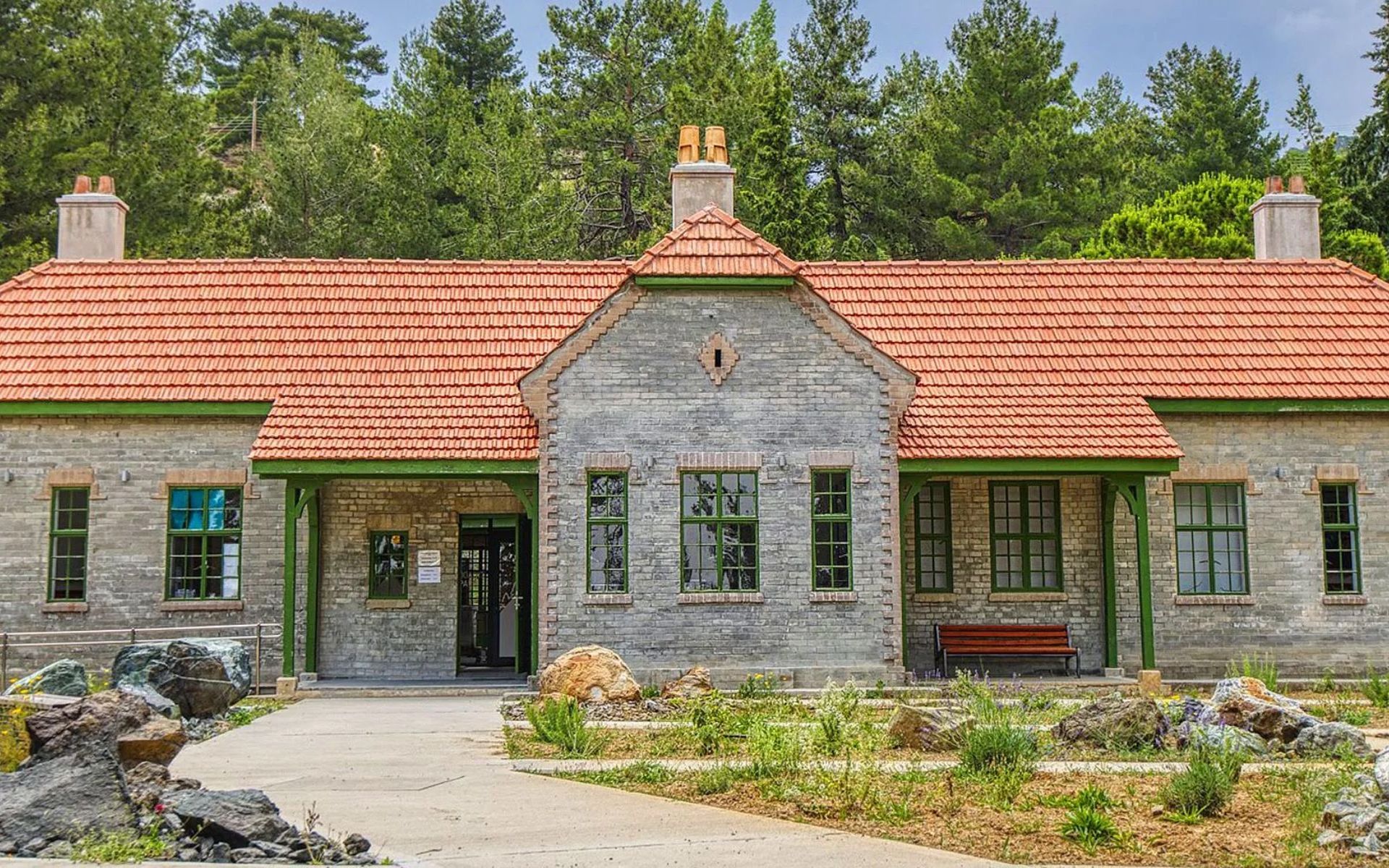
Troodos UNESCO Global Geopark Visitor Center
Troodos UNESCO Global Geopark Visitor Center
The Troodos UNESCO Global Geopark Visitor Center is a unique place located in the old Asbestos Mine where It combines the unique Troodos geology that is of great importance and value globally, with the unique natural environment of Troodos, the mining activity and the cultural heritage of the region. The site offers the opportunity to young and old people to discover, train and explore the Global Troodos Geopark.
The genesis of Cyprus is directly related to the genesis and elevation of the Troodos Mountains, which was the result of a series of unique and complex geological processes, which made Cyprus a geological model for geoscientists around the world and contributed to a better understanding of the evolution of oceans and our planet in general.
VISIT AND LEARN ABOUT THE MOST FAMOUS OPHIOLITE IN THE WORLD, WHICH IS MONUMENT TO THE WORLD HERITAGE OF THE EARTH!
The Visitor Center of Troodos Geopark, is located in the heart of the old mine of Asbestos, and is situated in the restored Primary School of the area. The building itself is of old architecture, with a special feature of the fireplaces that are hosted in each room and its inner courtyard. The building functioned as a School, until 1988, for the children of the workers who lived and worked in the Asbestos Mine.
You can use your time educationally and productively with:
– beautiful exhibits indicative of the geological importance of Troodos,
– a model representation of important sites of geological interest, such as mines and nature study trails and geological routes,
– a touch screen as an informative interactive tool for Global Geoparks,
– An imposing tree trunk with artificial materials that can captivate our little friends, where they can sit on the trunk of the tree and watch the documentary about the Troodos World Geopark
– an imposing tree trunk with artificial materials that can captivate our little friends, where they can sit on the trunk of the tree and watch the documentary about the Troodos World Geopark,
– Many other interactive activities.
The Troodos UNESCO Global Geopark Visitor Center is the ideal excursion for organized mainly but also individual visits, which will offer the ultimate experience to the visitor, to discover Troodos, the great treasure of Cyprus.
One visit is enough to convince you!
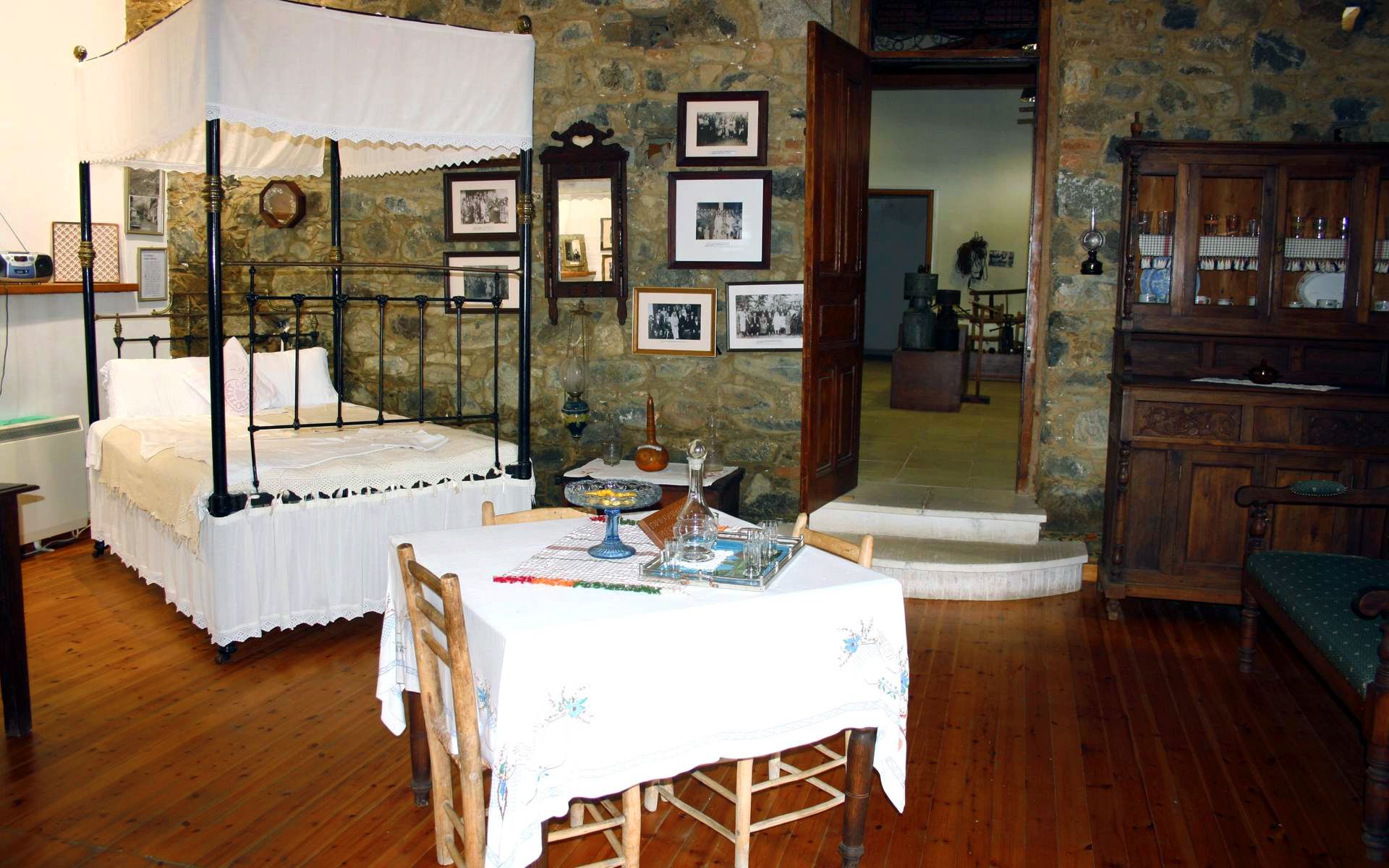
The Folklore Museum – Pedoulas
The Folklore Museum – Pedoulas
Situated in a central spot in the village close to the main Church of the Holy Cross, the Folklore Museum provides an intriguing insight into the social and economic development of the local community. In this establishment, historic items of people’s everyday life are exhibited. There are items that reflect a long forgotten way of life, the occupations and customs of the villagers many years ago. All these have established the historical and cultural heritage of the village.
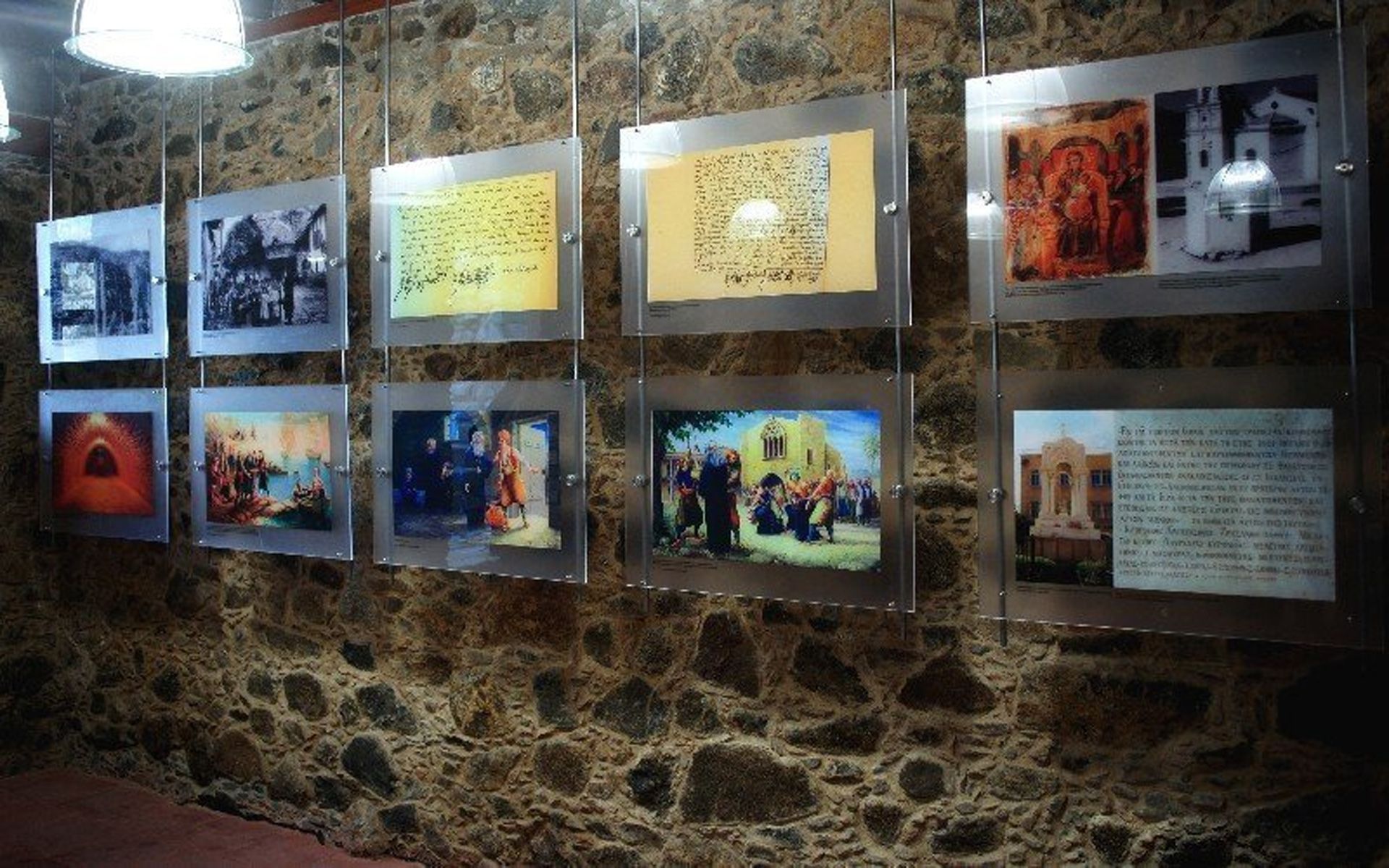
The House of Lavrentios in Kalopanayiotis village
The House of Lavrentios in Kalopanayiotis village
Bishop Lavrentios was the bishop of Kyrenia who was executed by the Ottoman Turks in 1821. He was born in the mountainous village of Kalopanayiotis and lived the first sixteen years of his life in the village attending school at the nearby monastery of Lampadistis. This was the martyr Lavrentios’ family house which has been recently restored and converted into a cultural center and a beautiful place to hold conferences. The museum of Lavrentios is housed in one of the ground floor rooms whose original character has been kept unaltered since.
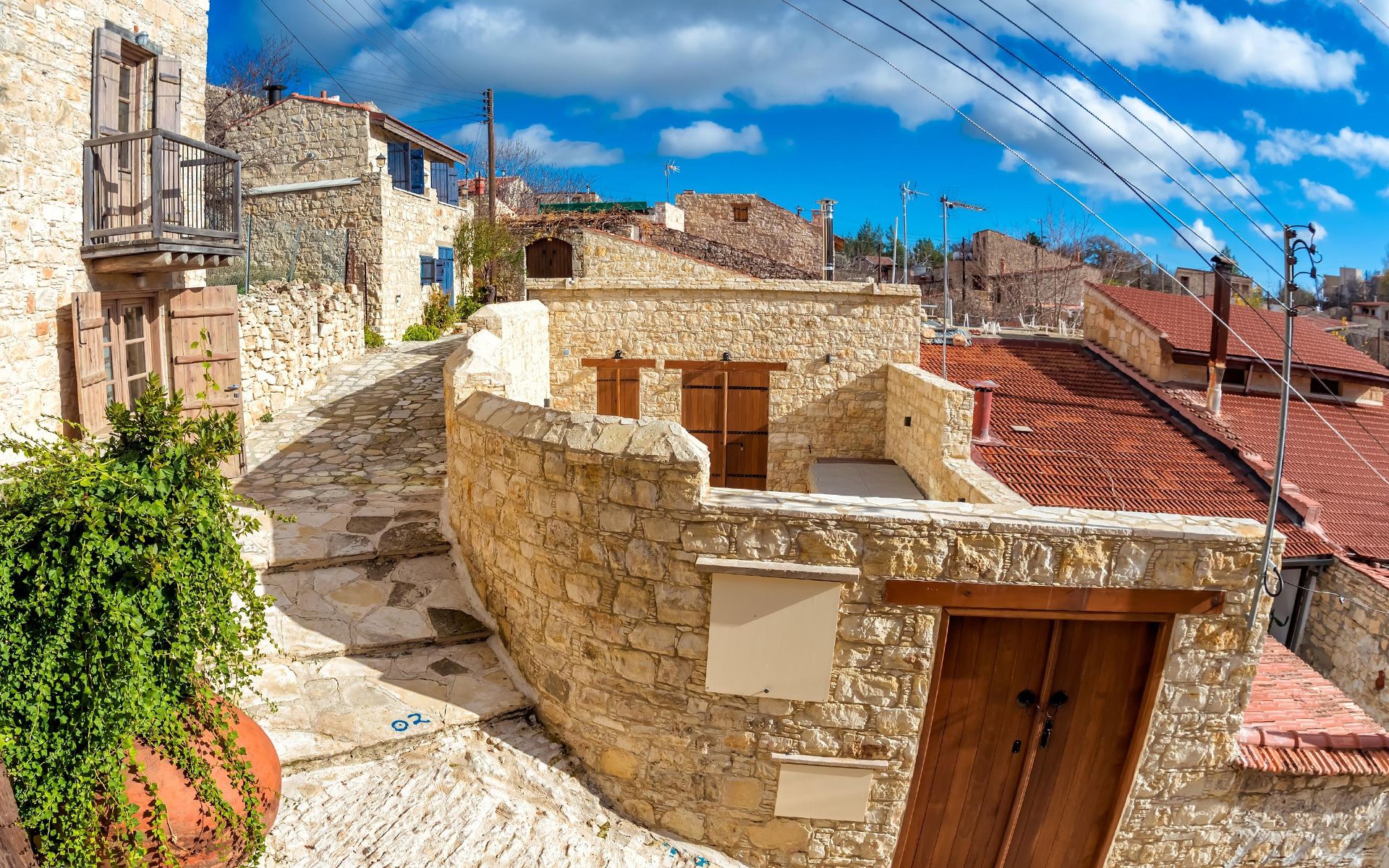
Sacristy of Lofou village
Sacristy of Lofou village
In the church in Lofou dedicated to the Annunciation of the Mother of God, a sacristy (an apartment in or a building connected with a church or a religious house, in which the sacred vessels, vestments, etc., are kept) has been created for the ecclesiastical heirlooms of the village, such as icons and wood carvings. The icons, which date from the 19th century, are of the Cormaro School style. The church and the sacristy are adorned with frescoes from 1919 signed by Othon Giavopoulos.
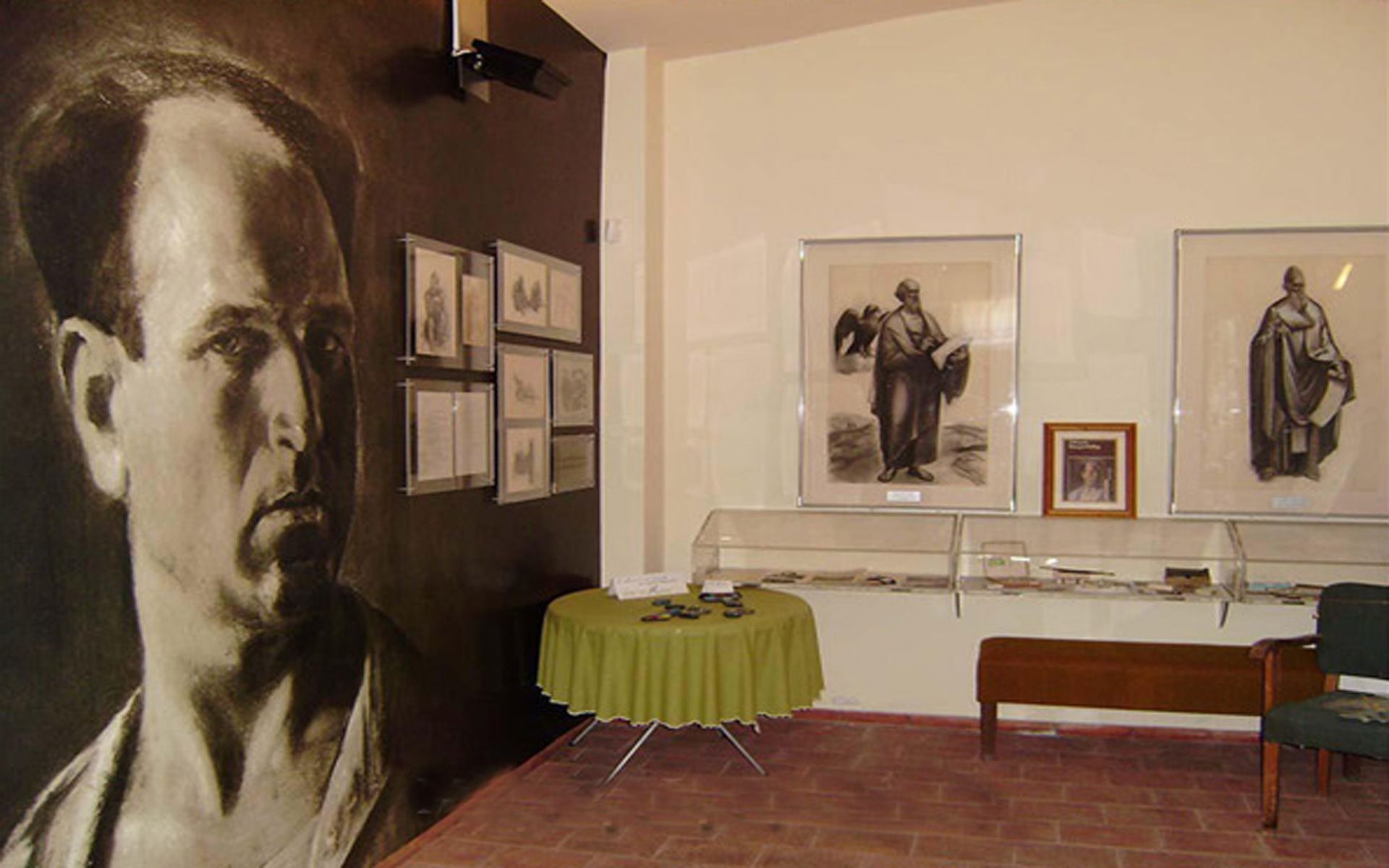
Painter Frangoulides Museum
Painter Frangoulides Museum
One of the most important museums in Cyprus is the “Museum Frangoulidi” which is built near the church of Panagia in the Village of Agros. The museum was founded in 2004 to honour Solomos Frangoulidis, who was one of the greater artists of the first generation of Cypriot artists. He is also considered a pioneer painter and hagiographer (someone who paints icons on church interior walls). The fondness between the inhabitants of the village and the painter was mutual and grew deeper during 1932 to 1934 when Frangoulidis stayed in Agros. The painter writes in his biography: “Concerning my painting, the two years I have spent in Agros, were the happiest of my entire life. I Felt love by the people here.” The village reciprocated this love by building the museum in his memory. His work has both religious and artistic value. He was the hagiographer who undertook the painting of all the moveable icons of the church of Panagia. Solon Papachristodoulou was the person who came up with the idea for the foundation of the museum and was actually the godchild of the painter as well as his only heir. Solon inherited all his patterns, fortune, reports, incomplete paintings, materials, and accessories for painting, as well as his rich legacy. Frangoulidis explains in his biography how he met Solon. He says that a young couple asked him to become the best man at their wedding and to christen their child, which he did. He also decided to name the baby after his own name, Solon. Solon in corporation with the Association of Farmers and Friends of Agros, the members of the executive council, and the help of the entire village, organized the museum. The building was donated by the church. The funds for the completion of this museum came from two sources: donations and loans. The museum is indisputably a treasure for the village, and is something that every visitor really ought to visit. You may reference the Community Council of Agros Brochure about the museum and the biography of Solonas Frangoulides.
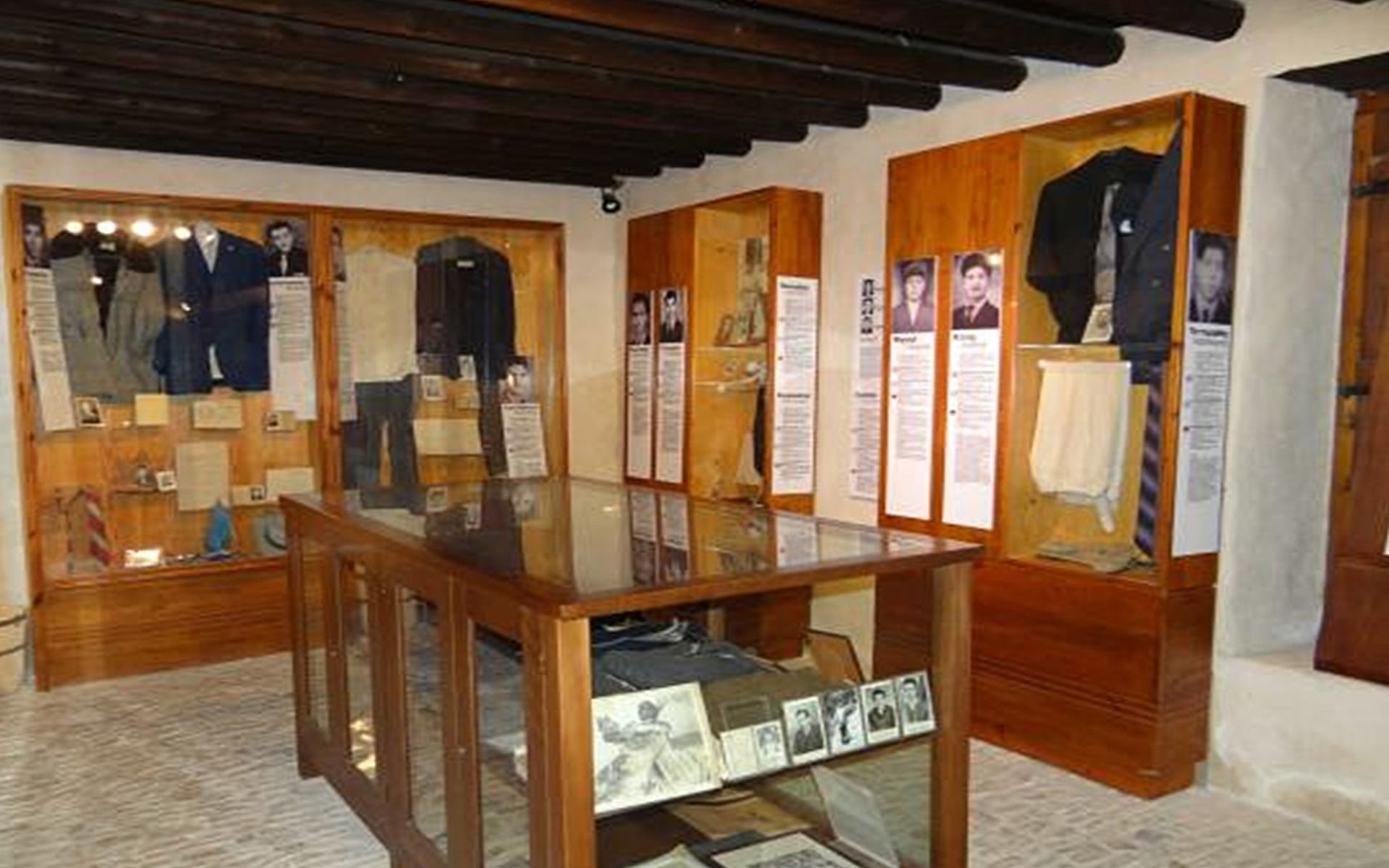
National Struggle Museum in Omodos
National Struggle Museum in Omodos
The national liberation struggle of Cyprus against the British colonial rule, known as the EOKA struggle, started on the 1st of April 1955 and ended with the Zurich – London agreement in February of 1959.The Struggle of EOKA was the culmination of long-standing struggles by the People of Cyprus in order to obtain their freedom. Omodos was ever-present in the struggle for the independence of Cyprus. The struggle for independence dates back to the start of the previous century, with Church Steward Dositheos, from the Holy Monastery of the Holy Cross in Omodos, as the head figure, lead the inhabitants who actively participated in the Greek revolution. Omodos’s inhabitants also actively participated in the two World Wars, as well as in the national liberation struggle of EOKA 1955 — 1959. The contribution of Omodos was enormous and a heavy price was paid; arrests, imprisonment, the blowing up of a hide-out, and other tragedies. After the fight for independence had ended (28th of October 1960), a group of inhabitants developed the idea for the creation of a National Struggle Museum in Omodos, so as to showcase the contribution of Omodos in the national struggles to younger generations. A section of the Monastery was used for the housing of the Museum.
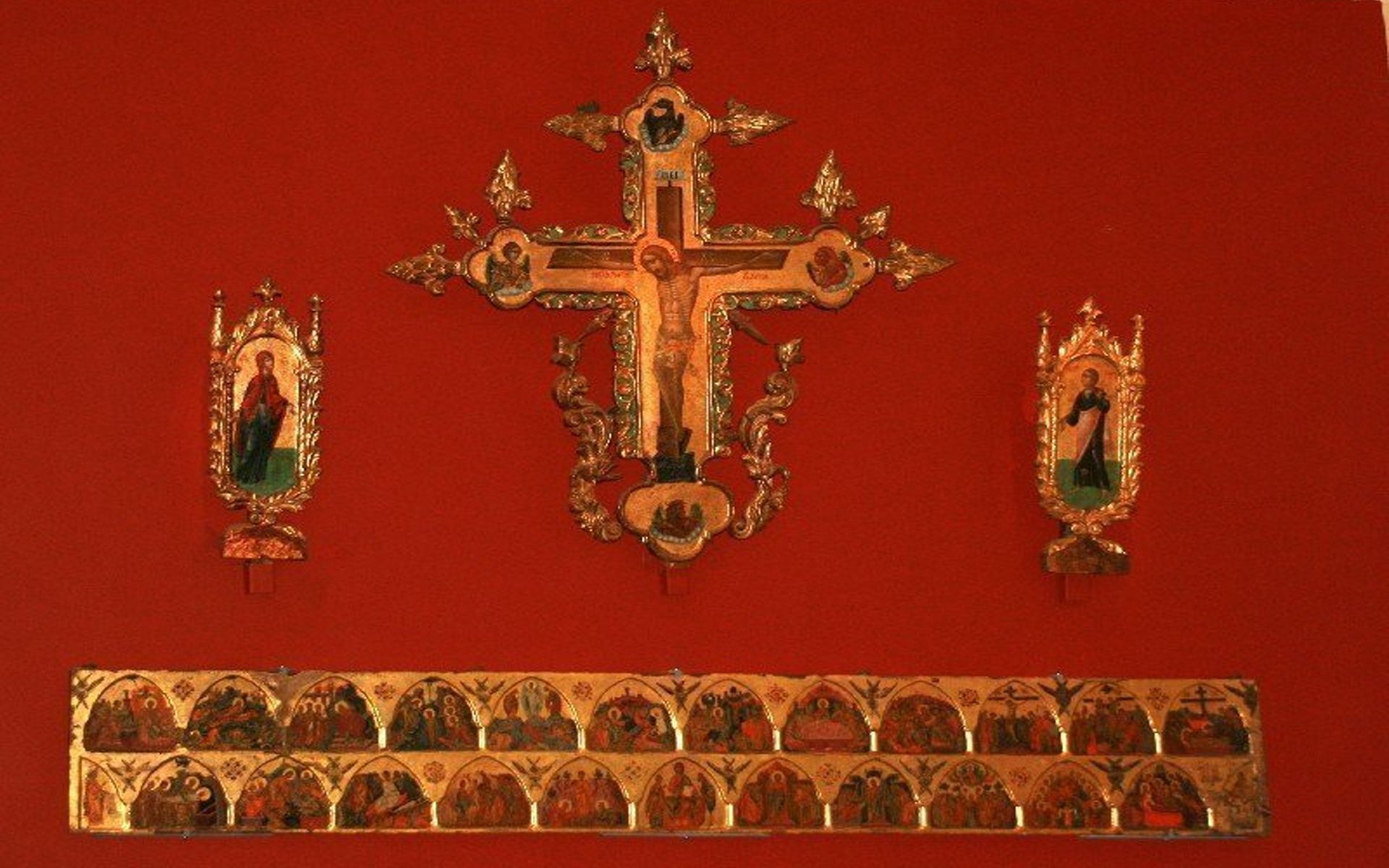
The Byzantine Museum in Kalopanayiotis
The Byzantine Museum in Kalopanayiotis
It is situated next to the Lambadistis monastery (dedicated to Saint John Lambadistis). Here, someone will see ecclesiastical artifacts on exhibit that have survived though the centuries in the monastery and from the other village churches. All the exhibits have been well preserved and maintained. The building originally served as the first primary school of the village and was converted in to a museum in the year 2000.
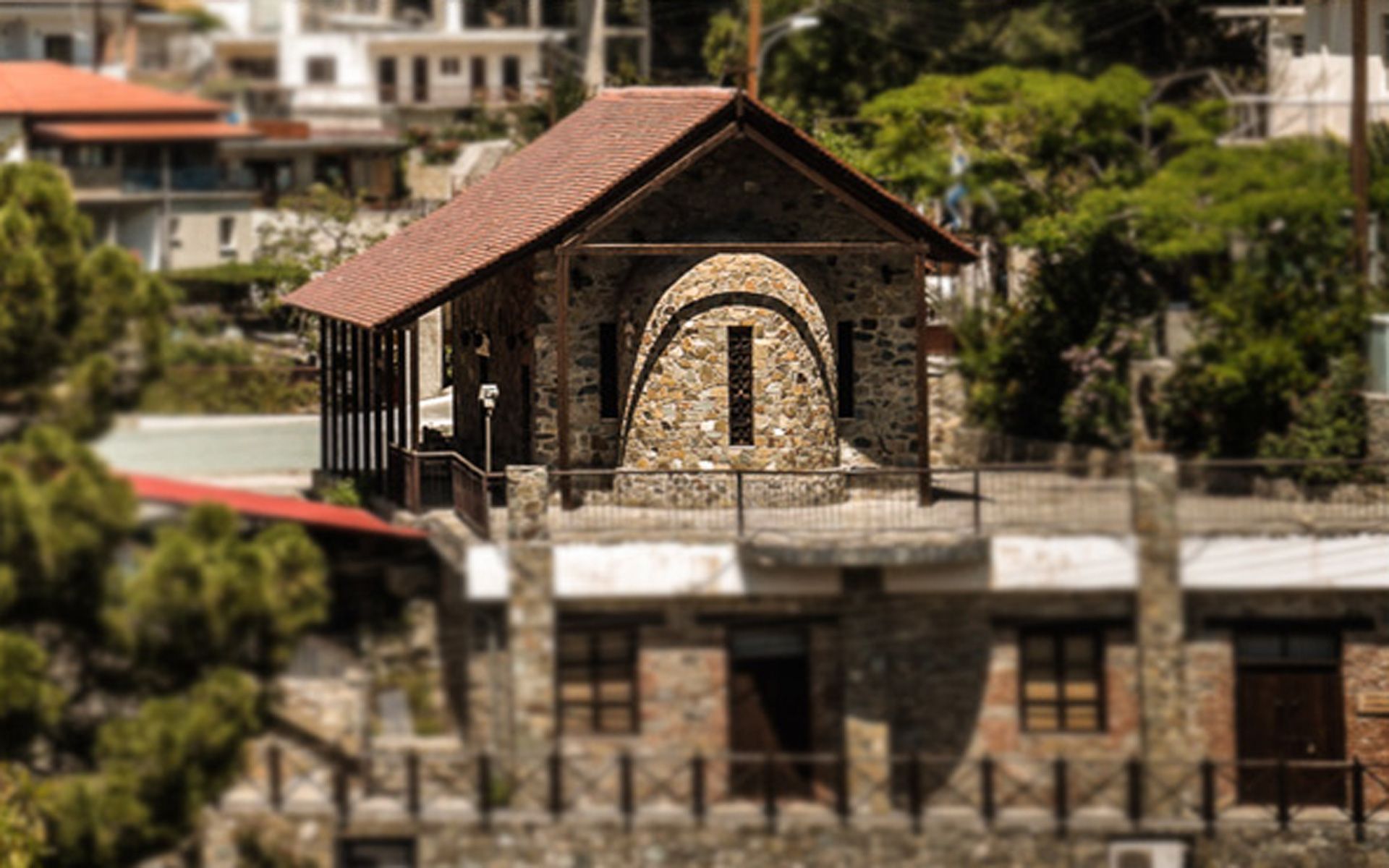
Museum of the Megas Agros – Byzantine Chapel
Museum of the Monastery of Megas Agros – Byzantine Chapel
The destruction of the historic Monastery of Megas Agros, which according to tradition was constructed by monks who had come from Kyziko (in Asia Minor) during the period of the iconoclasm. In 1894 the present church of Panagia Eleousa of Agros was built in its place. Based on the descriptions of the monastery, the chapel museum was rebuilt, in which the iconostasis, (containing icons of the 12th century), old books and other artifacts, which had been preserved from the destroyed monastery, and were placed in it. In the yard of the church, the Department of Antiquities discovered, not only architectural remains, but also several samples from the Monastery ’s hagiographies (icons painted on walls and ceilings), as well as many tiles which were used to cover the wooden roofs of the Troodos churches.
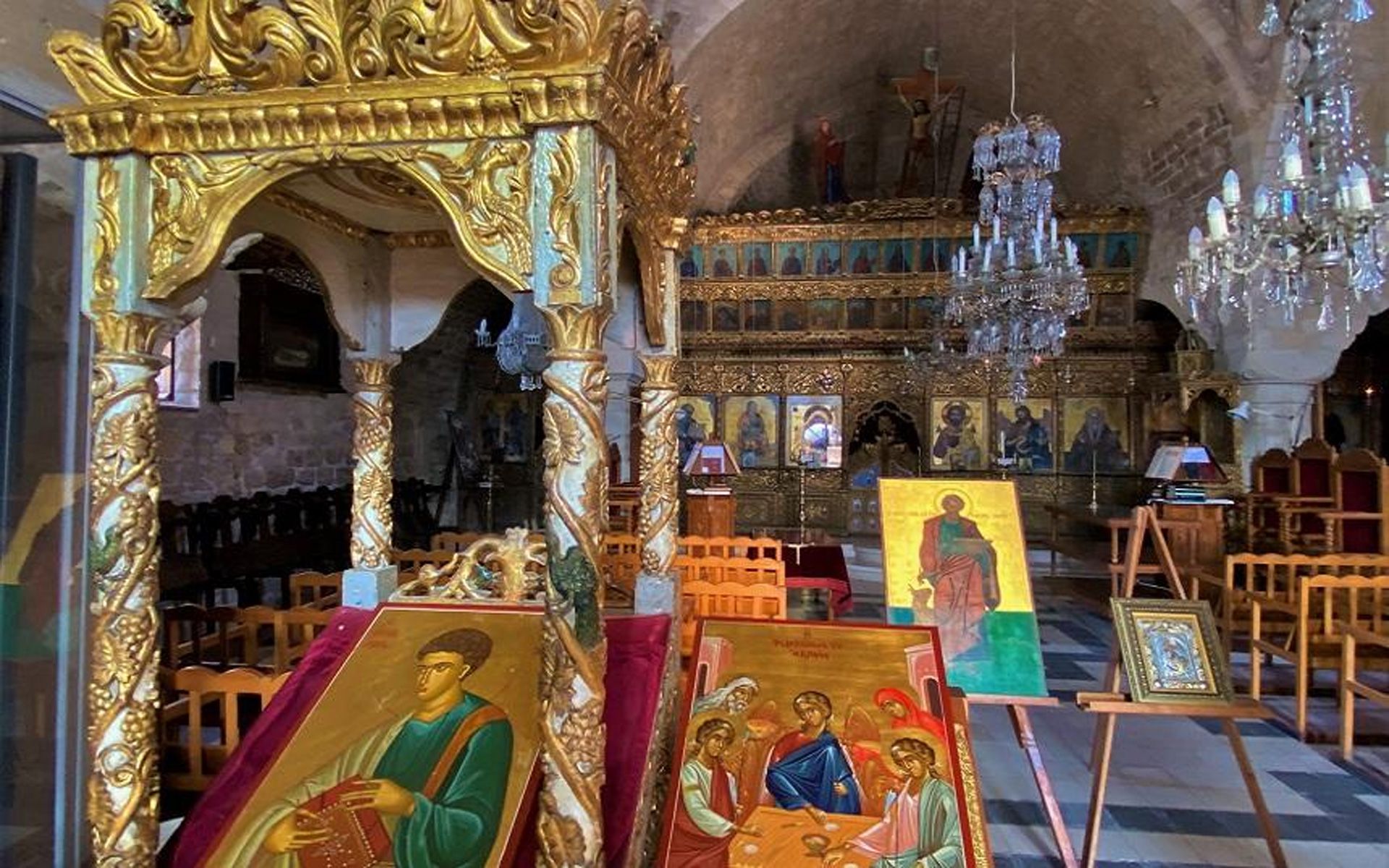
Arsos Icon Chamber
Arsos Icon Chamber
In the Apostle Philippos (Phillip) Icon Chamber, transportable icons dating between the 17th and 20th centuries are on display. Of particular interest are the icons of Christ and the Virgin Mary, attributed to Dimitrios (first half of the 17th century) as well as another icon of Saint John the Baptist painted by Solomon Thitis in the middle of the seventeenth century. In the main church there is also a big icon of Saint Philip painted in the thirteenth century, which features scenes from his life.
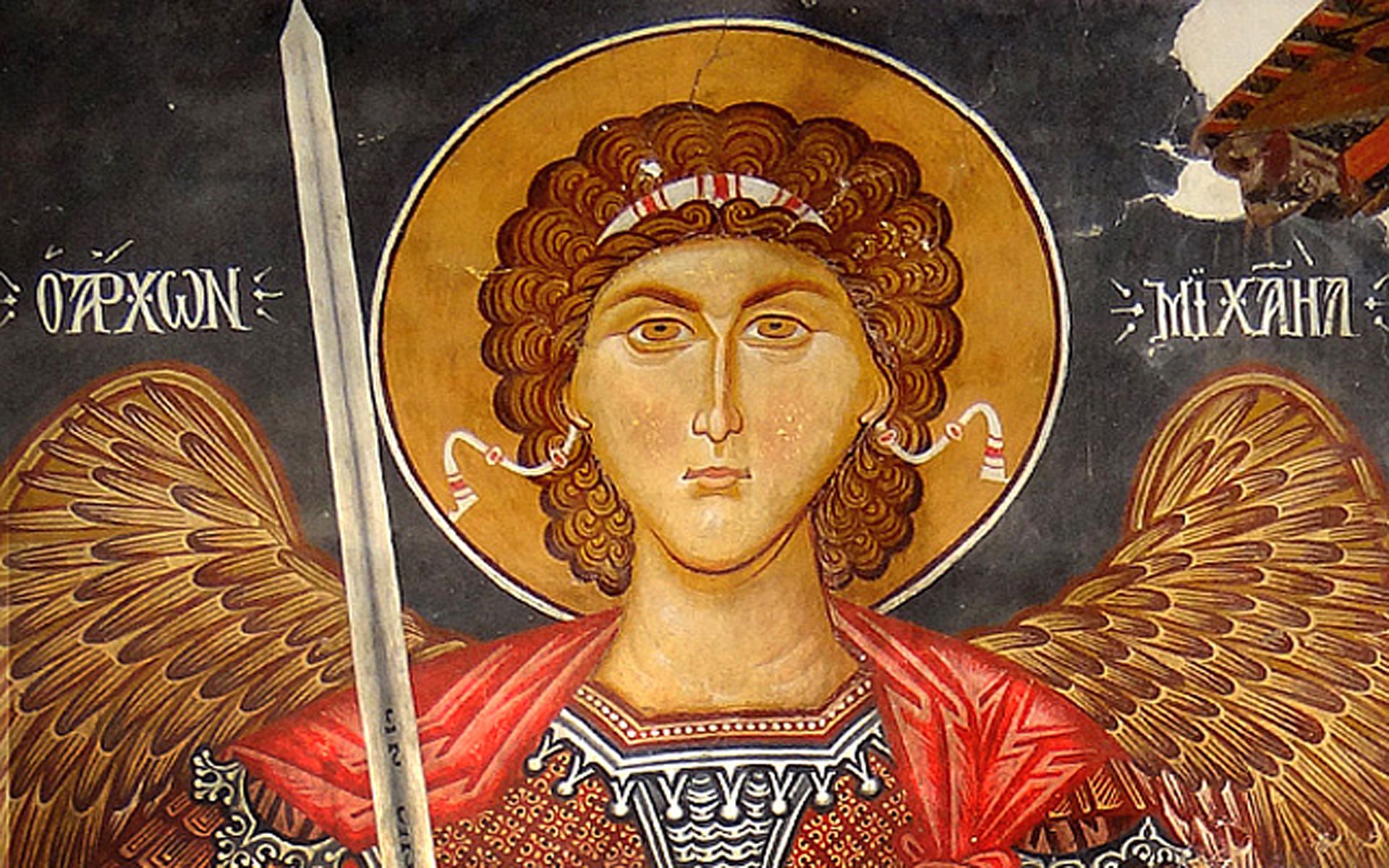
The Byzantine Museum of Pedoulas
The Byzantine Museum of Pedoulas
The Pedoulas Byzantine Museum was established during the current tenure of Bishop of Morphou ‘Neophytos’ in order to house icons and holy relics of the 13th -20th century, and is situated close the church of Archangel Michael. The late Andreas Ellinas was the founder and benevolent sponsor of this byzantine museum. The Head Priest Charalambos Kourris made an important contribution by collecting and safeguarding the icons and other relics in the Holy Cross Church which are now exhibited in the Byzantine Museum.
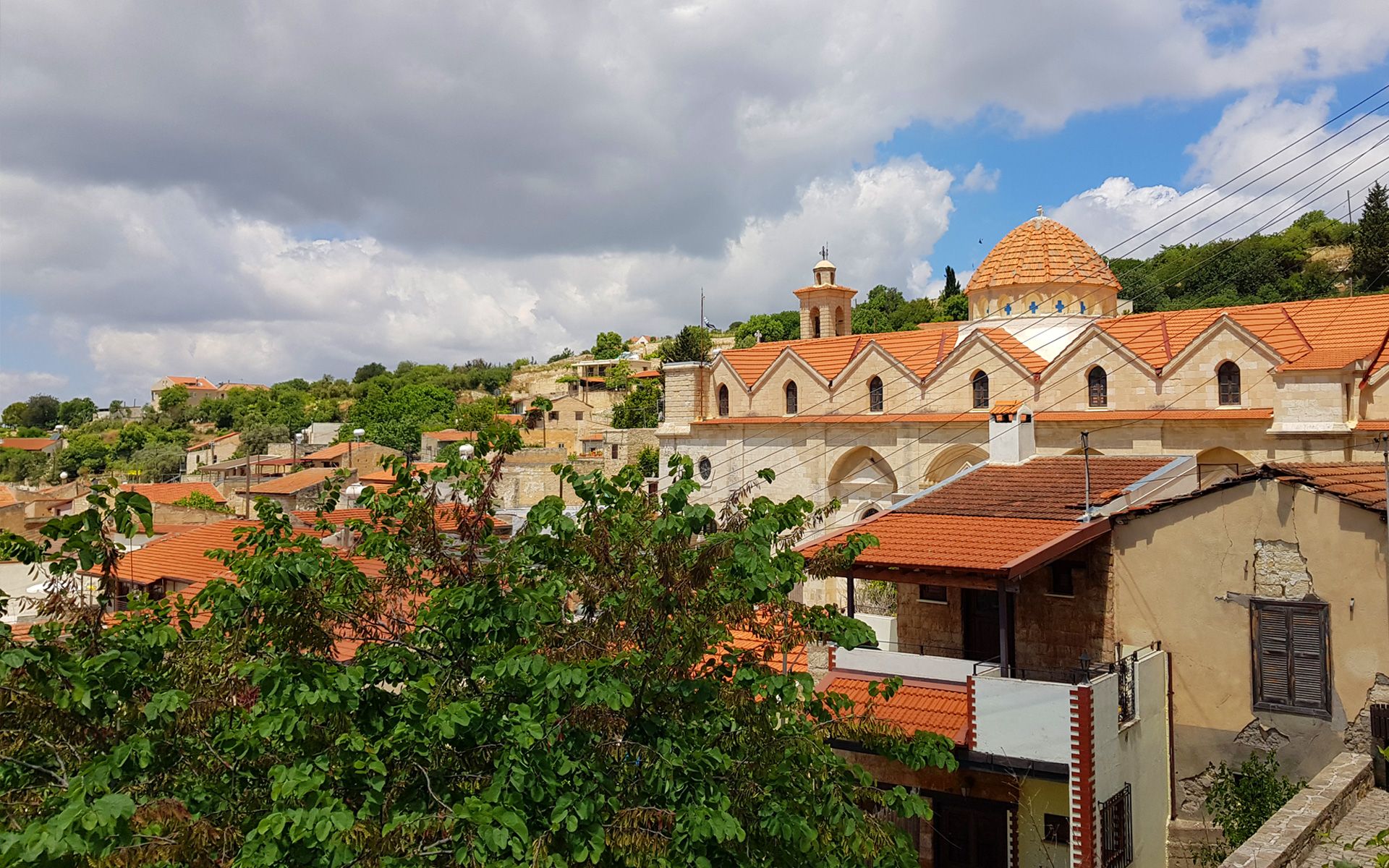
Vasa Koilaniou Church Museum
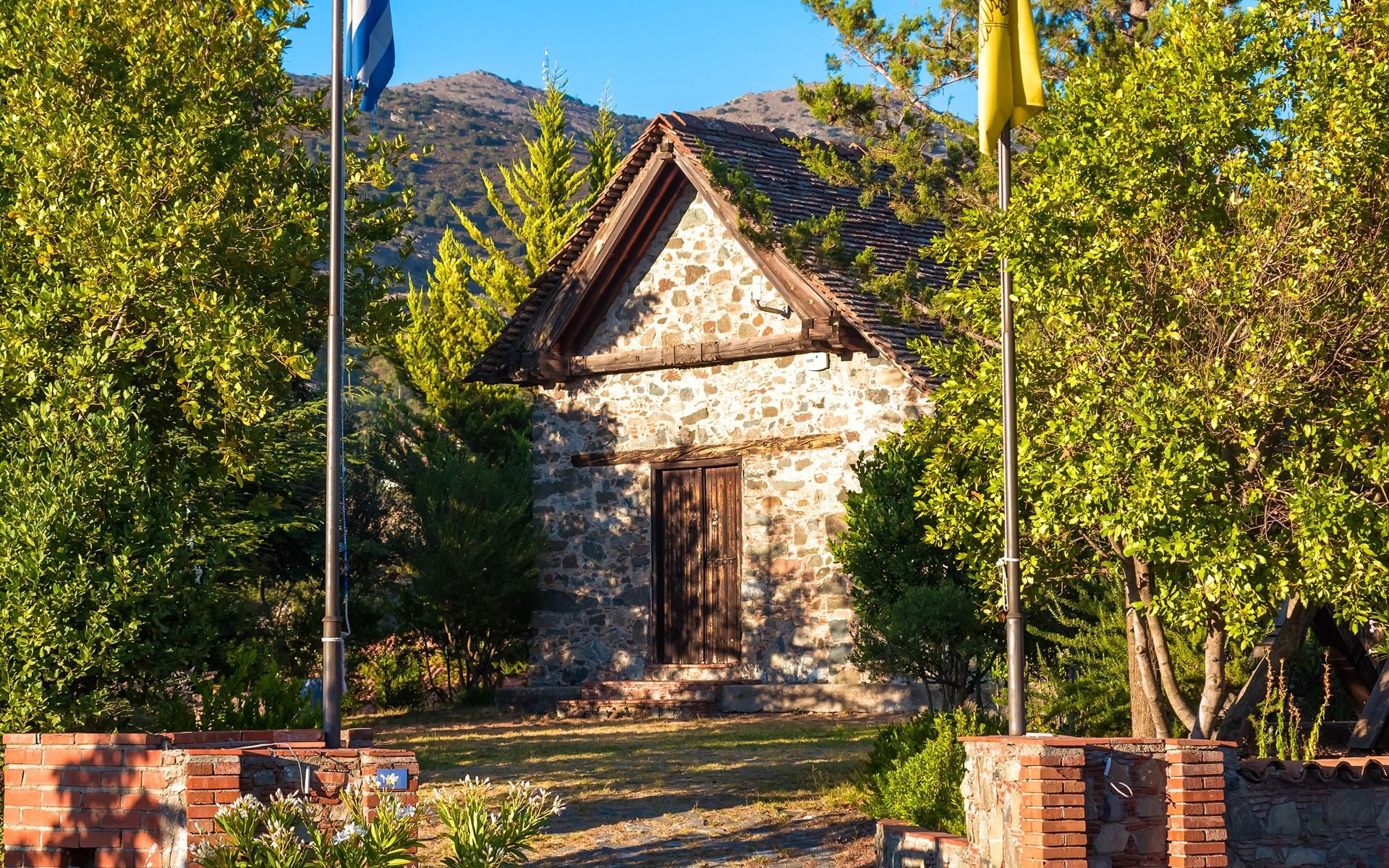
Ecclesiastical Museum of Kyperounda village
Ecclesiastical Museum of Kyperounda village
Ecclesiastical Museum of Kyperounda village In the village of Timios Stavros (Holy Cross) in Kyperounda you will find an Ecclesiastical museum which amongst other artifacts, contains remarkable frescoes dating from 1521, and a priceless collection of icons, among which the one of Saint Marina, stands out, and which dates from the Thirteenth century.
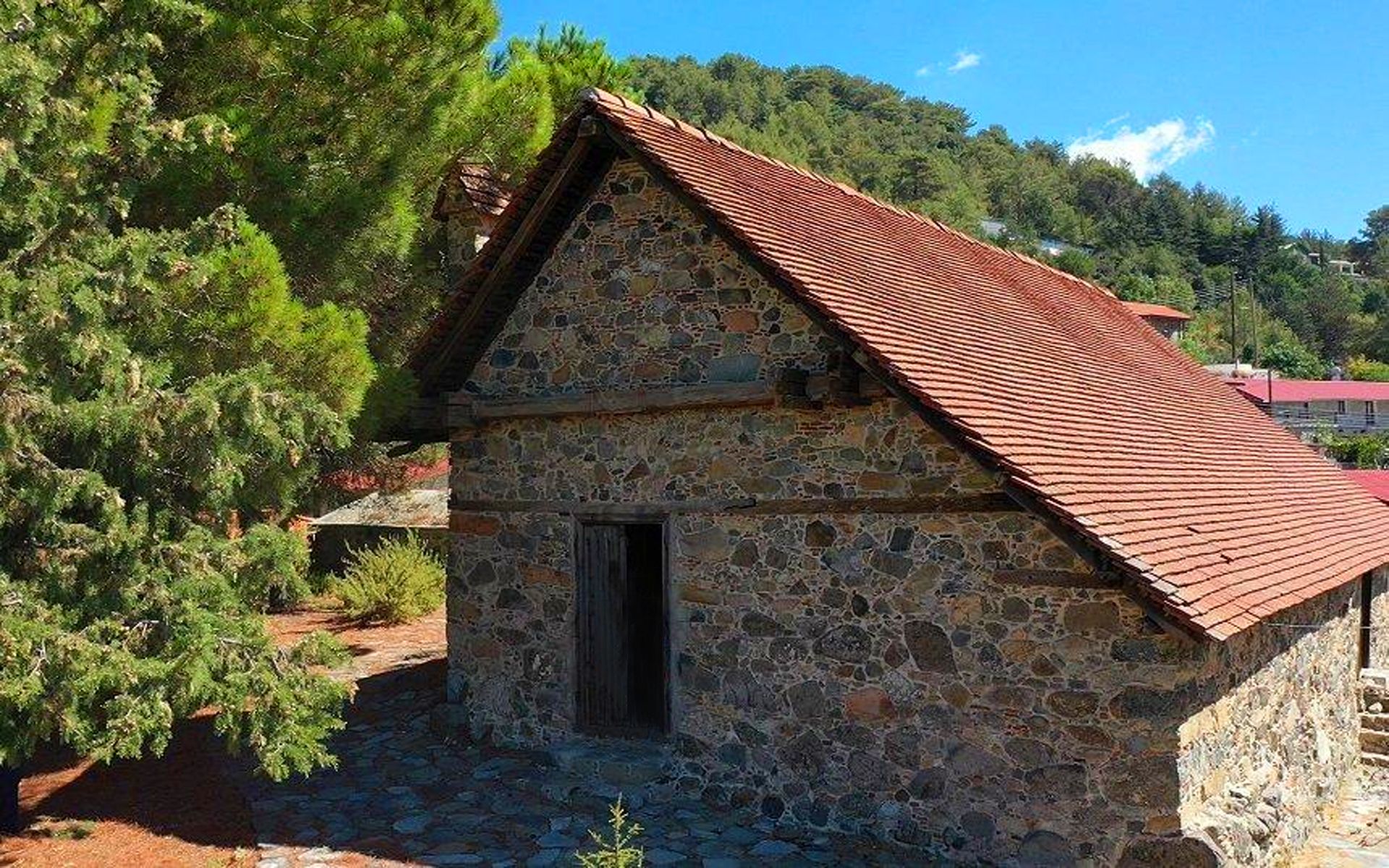
Icon Collection of Lemythou village
Icon Collection of Lemythou village
The Chapel of Agios Theodoros (Saint Theodore) contains the icon collection of the village of Lemythou, where a special place is allocated to the 13th century icon of the Virgin (Mary) Kykkotissa, and the 14th century icon of Saint Nikolaos (Nicholas).
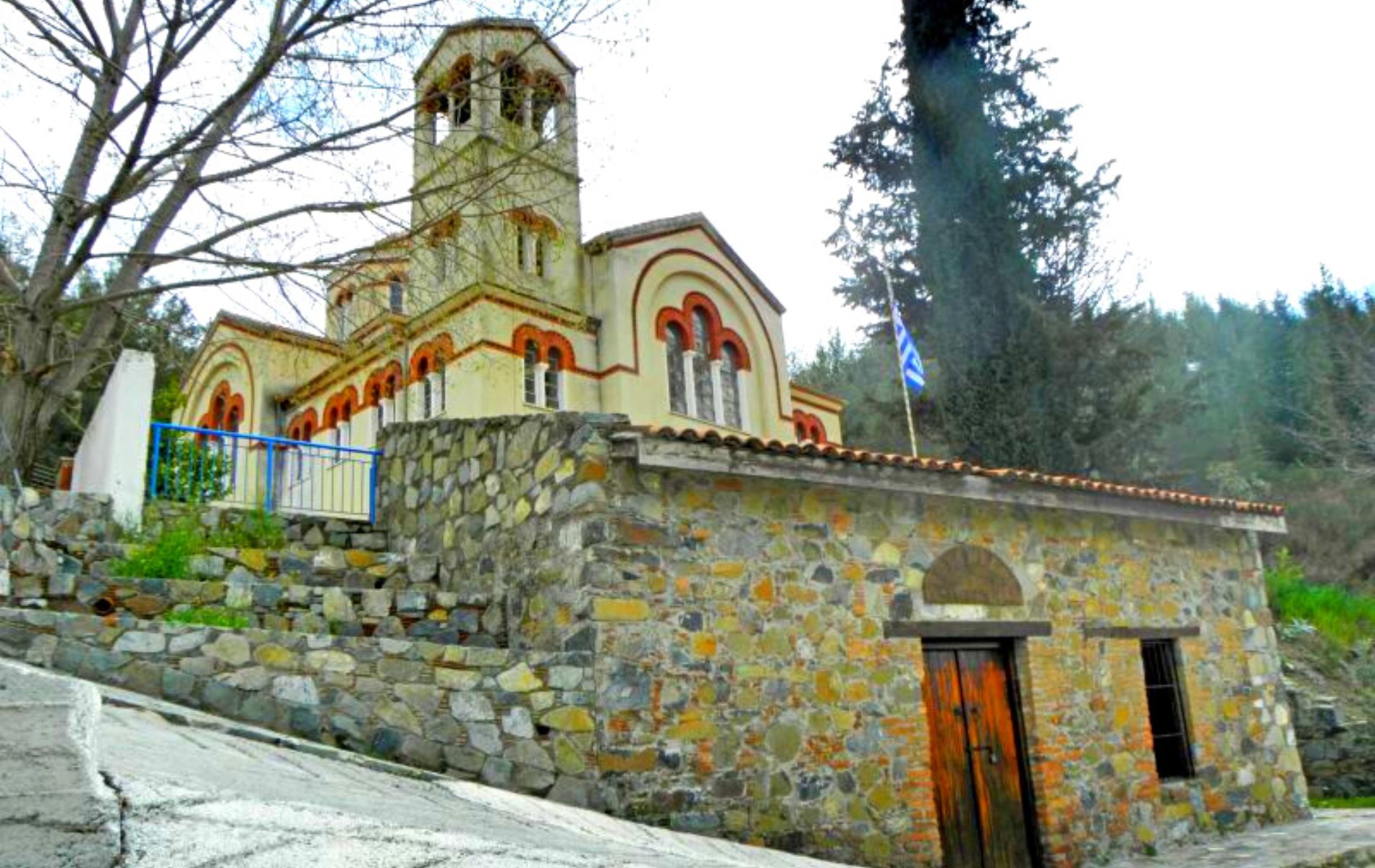
Agridia Icon Chamber
Agridia Icon Chamber
In the women’s section of the Prophet Elias Church, the old wooden icon of the chapel is on show, together with other post-Byzantine icons, and, with the icon-case of Saint Paraskevi’s holy remnants of especial interest.
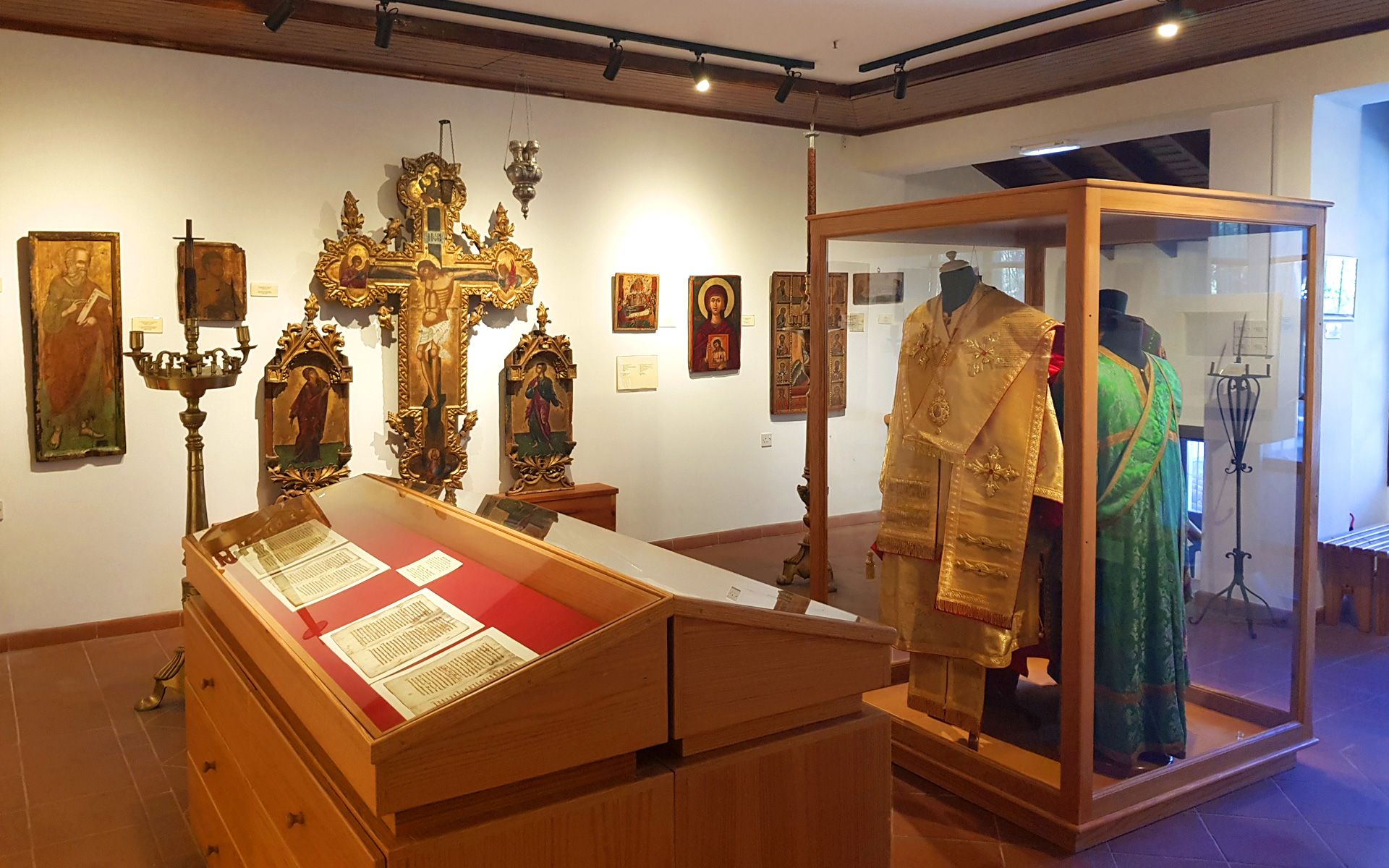
Palaichori Village Museum
Palaichori Village Museum
The museum is incorporated in a renovated house of traditional architecture, located in the center of the village. The museum exhibits outstanding works of religious art and historical documents, which have been preserved over the centuries. Chronologically, the exhibits span many centuries, including the Franken era (1192-1489) until present day.
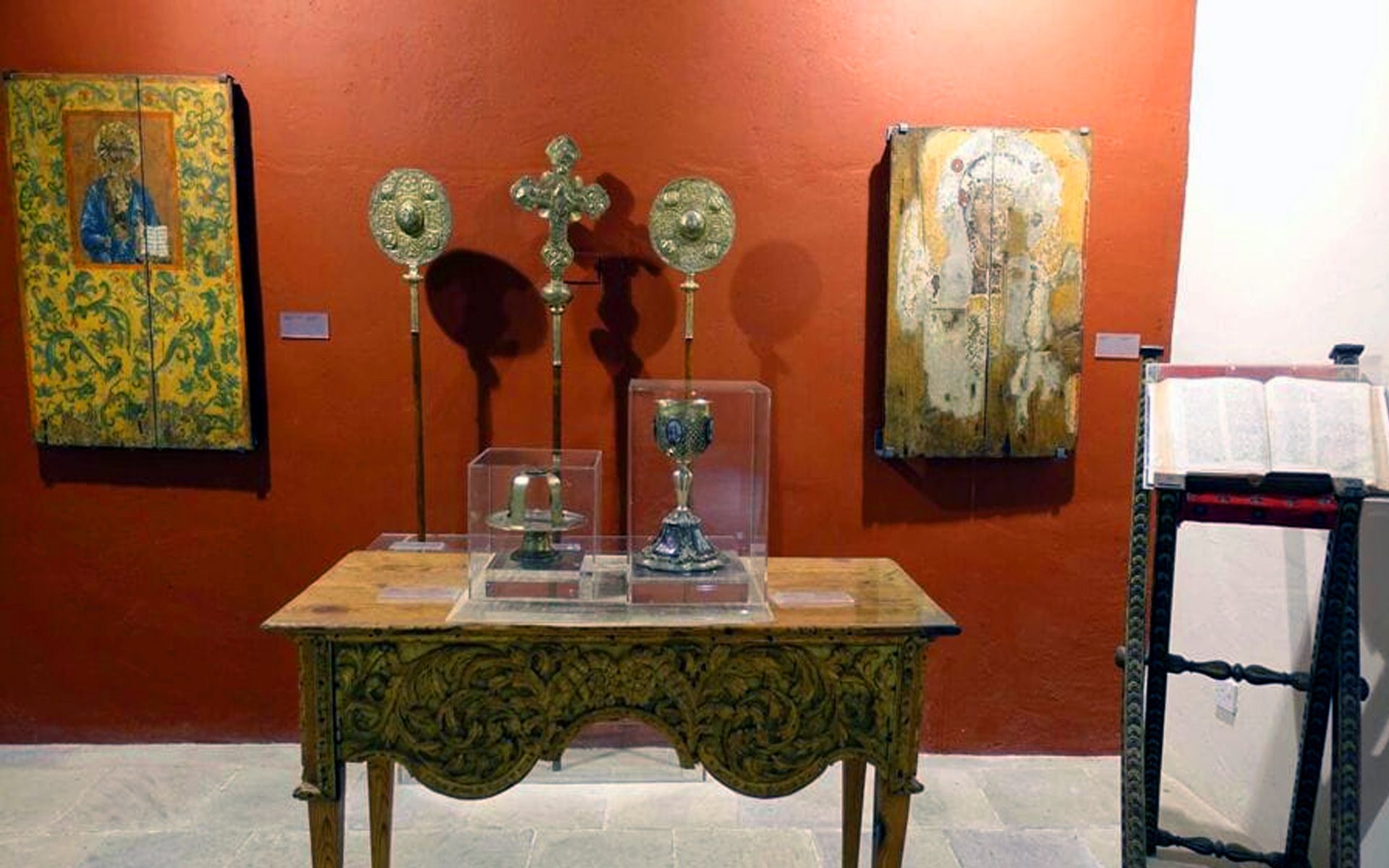
Omodos Ecclesiastical Museum
Omodos Ecclesiastical Museum
The Ecclesiastical Museum of Omodos is housed in two renovated arched halls which are situated on the floor below the monastery complex. It is one of the most attention-grabbing Ecclesiastical Museums in Troodos Area. It houses a great number of remarkable items and priceless treasures of Christian Orthodoxy which were safeguarded by the earlier generations who, in turn, passed them on to their descendants. All the artworks are displayed in a specially designed place within the halls and are on show to the public. This exhibition contributes significantly to the protection and conservation of the artworks. Some of the remarkable items on exhibit are the following: • Ancient gospels dating from 1728 • Byzantine icons of exemplary craftsmanship • Big, wooden, engraved gilded lamps and stands for the gospels • Old Books from the 16th-19th century. Some old editions include handwritten reminders • A golden-embroidered large Russian Sepulchral • Remarkably crafted Holy Communion cups and other holy vessels • Ancient holy canonicals, belt-fasteners and clerical belts • Silver relic boxes
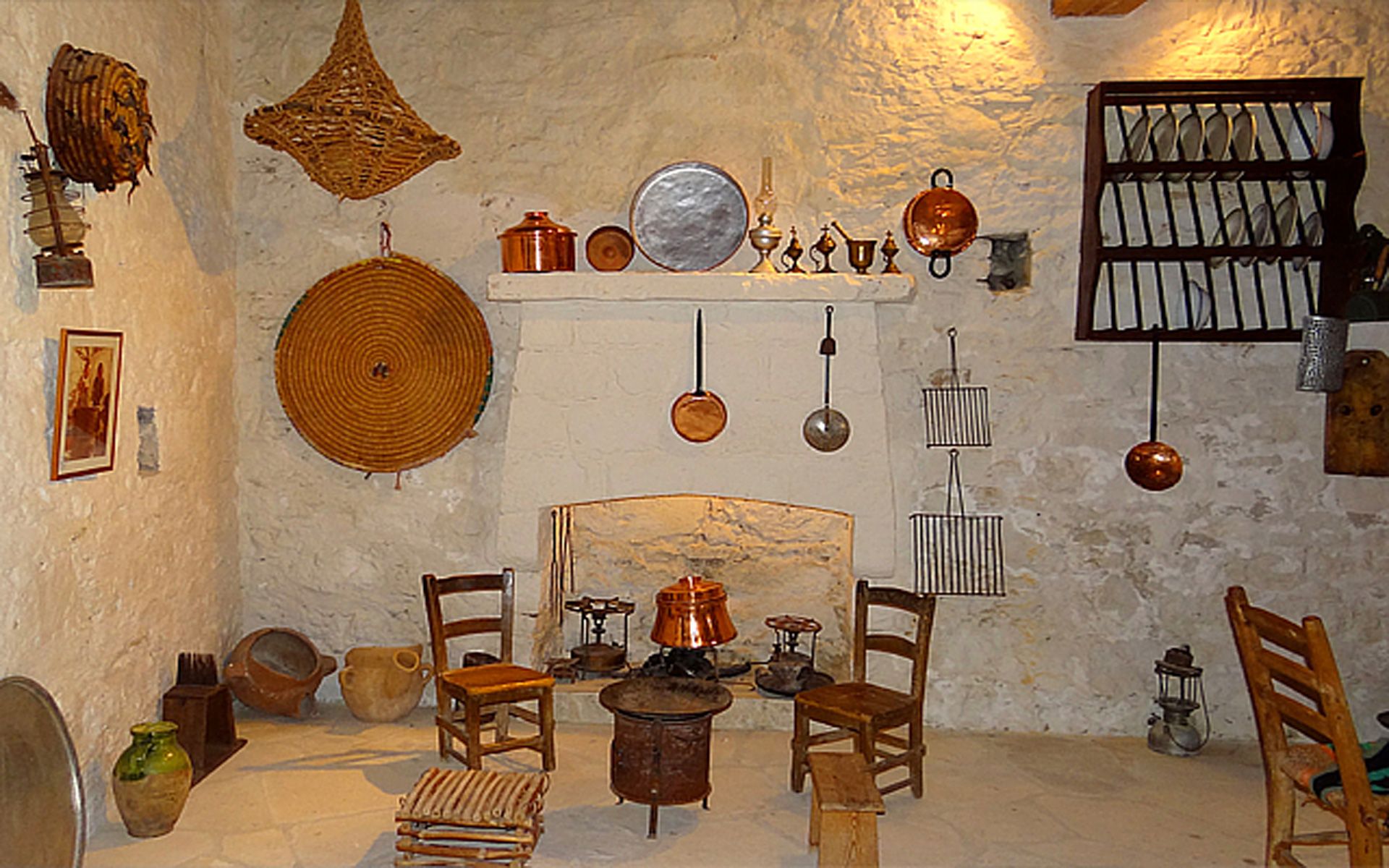
The Folk Art Museum in the village of Arsos
The Folk Art Museum in the village of Arsos
In 1997, the Folk Art Museum was founded by the Community Council of Association for the Development of Arsos. The museum is situated in a restored 18th century residence which constitutes a level B’ ancient monument. The Department of Antiquities supervised the restoration works. The goals that led to the creation of the Folk Art Museum were the preservation of the old folkways of the community of Arsos, as well as the preservation of the rich cultural heritage of the Krasochoria (the wine villages). The museum is, in effect, a traditional house of the area, displaying its entire original household items and furniture. On the façade of the house there is a tall stone wall and the front door leads to the stony yard which contains a shed where tools, most of which are no longer in use (including a vineyard plough) and materials related to vineyards and wine are displayed. One can also see a boiler used for the production of the famous Cypriot alcoholic drink “Zivania”, the most potent of traditional Cypriot alcoholic beverages. Further in, the visitor enters the so called “Palace” which was the main hall for the family. This room was a multi-purpose room and was used as a kitchen, a dining room and a living room. Here, one can see traditional furniture, a fireplace, a cooking stove, copper utensils, and a dresser, to name but a few. From the paved yard, a stony staircase leads to two upper floor rooms. In the main room visitors can see a traditional bed, a wardrobe where the old ladders are kept, a timeworn Venetian mirror, a sofa, a carved chest, a loom, and an infant bed. Downstairs there’s a cellar where traditional “Linos” is preserved along with the large clay pots, the presser, and the other antiquated winery tools. On the ground floor there is a room which houses old photos including topics such as wedding parties, and the Cyprus national fight amongst others. The Museum building is perfect for hosting various exhibitions such as painting and photography as well as other events.
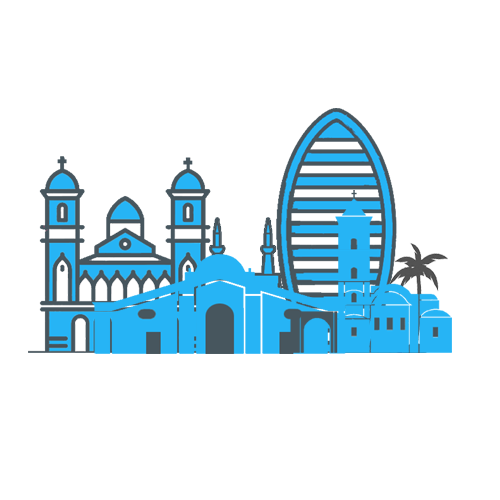 Cities/District
Cities/District Monasteries
Monasteries Unesco Churches
Unesco Churches Food & Drink
Food & Drink  Limassol to Nicosia
Limassol to Nicosia Famagusta to Machairas
Famagusta to Machairas Kourion to West Akamas
Kourion to West Akamas Hotels
Hotels Villas
Villas Agrotourism Accommodations
Agrotourism Accommodations Flights
Flights Rent a Car
Rent a Car